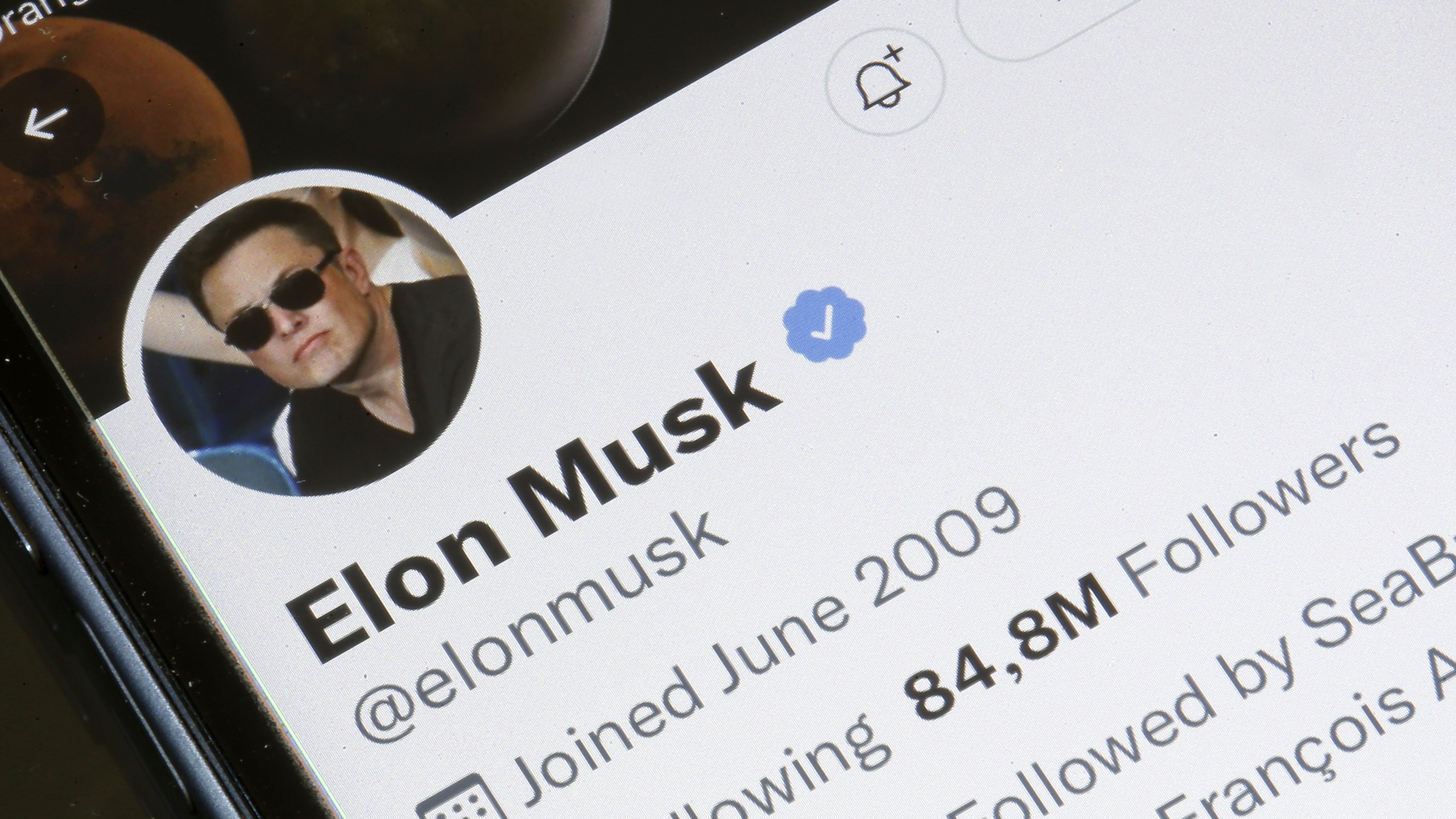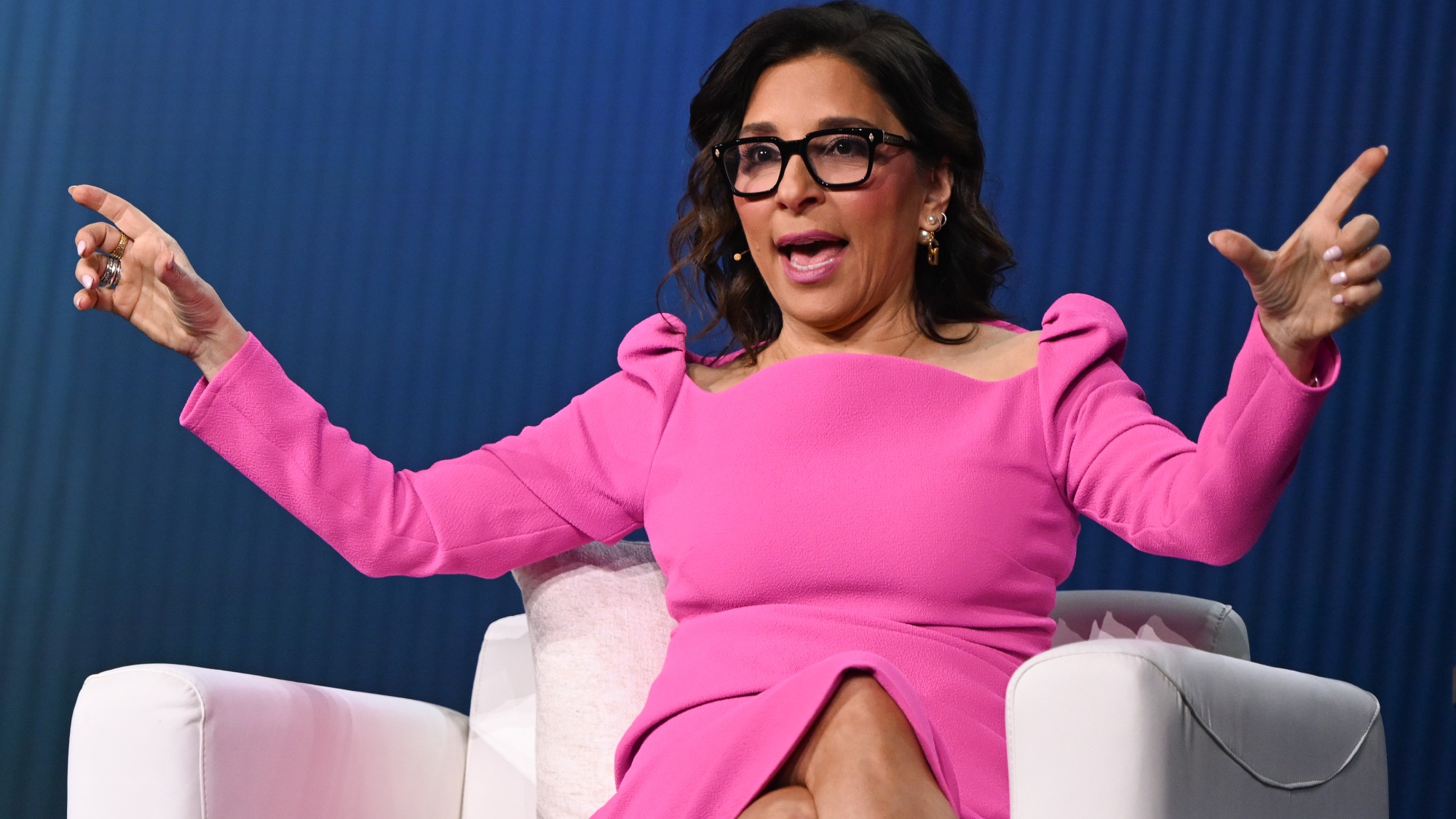Elon Musk’s charges for Twitter blue tick
Verified users could be forced to pay in order to keep their blue checkmark

A free daily email with the biggest news stories of the day – and the best features from TheWeek.com
You are now subscribed
Your newsletter sign-up was successful
Twitter’s new chief executive, Elon Musk, has revised his plans to charge verified users to keep their “blue tick” status, reducing the fee from $19.99 to $8 per month.
In a series of tweets, Musk decried “Twitter’s current lords & peasants system for who has or doesn’t have a blue checkmark” as “bullshit” adding: “Power to the people! Blue for $8/month.”
Twitter’s former method of verifying users for a blue tick included a short online application form, and “was reserved for those whose identities were targets for impersonation, such as celebrities, politicians and journalists”, said the BBC.
The Week
Escape your echo chamber. Get the facts behind the news, plus analysis from multiple perspectives.

Sign up for The Week's Free Newsletters
From our morning news briefing to a weekly Good News Newsletter, get the best of The Week delivered directly to your inbox.
From our morning news briefing to a weekly Good News Newsletter, get the best of The Week delivered directly to your inbox.
Now anyone will be able to pay for their verified status, and Musk explained that those subscribers would get priority in replies, mentions and search on the platform, as well as the ability to post longer video and audio content while getting half as many ads as free users. “This will also give Twitter a revenue stream to reward content creators,” he added.
According to internal correspondence seen by tech website The Verge, “verified users would have 90 days to subscribe or lose their blue checkmark”. The decision, along with Musk’s takeover of Twitter in general, has courted controversy, with users fearing the potential for political extremism.
Subscription fee haggling
Musk completed the $44bn (£37.9bn) takeover of the site on Friday. In the “months of legal wrangling” leading up to the acquisition, he “repeatedly expressed concerns about the verification process” as well as “the number of spam and bot accounts he believes litter the site”, said the BBC.
The leaked internal documents had suggested users would have to pay $19.99 per month but Musk seemed to be persuaded by a bizarre exchange with author Stephen King, where the richest man in the world seemed happy to “haggle” with the writer over subscription prices, said the Daily Mail.
A free daily email with the biggest news stories of the day – and the best features from TheWeek.com
“$20 a month to keep my blue check? F*** that, they should pay me,” King tweeted to his 6.9m followers. “If that gets instituted, I’m gone like Enron.” Musk replied: “We need to pay the bills somehow! Twitter cannot rely entirely on advertisers. How about $8?”
But Nu Wexler, former Twitter Head of Global Policy Communications, told the BBC that introducing a fee for blue ticks could make it “harder to sift through disinformation and find high-quality information”.
In charging journalists to provide news, Musk “doesn’t realise that he needs journalists and other authoritative sources of information to be verified more than we need the blue tick”, agreed Quartz’s Scott Nover. “Without us, the free news engine” of Twitter will become “the very opposite of the free-debate, town-square utopia that Musk claims to desire”.
Democrats’ fears
The proposed subscription fee is just one of the many changes Musk has made since becoming CEO, including dissolving Twitter’s board of directors and making sweeping job cuts, with some 25% of Twitter’s workforce at risk of being made redundant in the first round of cuts, according to reporting from The Washington Post.
Elon Musk’s takeover of Twitter is also likely to add to the “growing misery” of the Democrats as they head into the midterm elections, thanks to rumours that Musk could allow former Republican president Donald Trump to return to the site, wrote Joshua Green for Bloomberg. According to a Twitter source, Musk “intends to do away with permanent bans on users because he doesn’t believe in lifelong prohibitions.”
“If I had a dollar for every time someone asked me if Trump is coming back on this platform, Twitter would be minting money!”, Musk tweeted on Monday.
Indeed, Musk’s “professed admiration for free speech is being celebrated on the right, whose denizens complain that controls over the spread of misinformation online are an affront to their liberties,” said The Economist, and “this is having a big impact on who uses Twitter,” said the newspaper, which has gathered data that appeared to show “Twitter’s centre of gravity shifting to the right”, with a surge in right-leaning users joining the site, while some left-leaning users seem to be leaving.
-
 El Paso airspace closure tied to FAA-Pentagon standoff
El Paso airspace closure tied to FAA-Pentagon standoffSpeed Read The closure in the Texas border city stemmed from disagreements between the Federal Aviation Administration and Pentagon officials over drone-related tests
-
 Political cartoons for February 12
Political cartoons for February 12Cartoons Thursday's political cartoons include a Pam Bondi performance, Ghislaine Maxwell on tour, and ICE detention facilities
-
 Arcadia: Tom Stoppard’s ‘masterpiece’ makes a ‘triumphant’ return
Arcadia: Tom Stoppard’s ‘masterpiece’ makes a ‘triumphant’ returnThe Week Recommends Carrie Cracknell’s revival at the Old Vic ‘grips like a thriller’
-
 Elon Musk’s pivot from Mars to the moon
Elon Musk’s pivot from Mars to the moonIn the Spotlight SpaceX shifts focus with IPO approaching
-
 Moltbook: the AI social media platform with no humans allowed
Moltbook: the AI social media platform with no humans allowedThe Explainer From ‘gripes’ about human programmers to creating new religions, the new AI-only network could bring us closer to the point of ‘singularity’
-
 Will regulators put a stop to Grok’s deepfake porn images of real people?
Will regulators put a stop to Grok’s deepfake porn images of real people?Today’s Big Question Users command AI chatbot to undress pictures of women and children
-
 Inside a Black community’s fight against Elon Musk’s supercomputer
Inside a Black community’s fight against Elon Musk’s supercomputerUnder the radar Pollution from Colossal looms over a small Southern town, potentially exacerbating health concerns
-
 X update unveils foreign MAGA boosters
X update unveils foreign MAGA boostersSpeed Read The accounts were located in Russia and Nigeria, among other countries
-
 What's Linda Yaccarino's legacy? And what's next for X?
What's Linda Yaccarino's legacy? And what's next for X?Today's Big Question An 'uncertain future' in the age of TikTok
-
 X CEO Yaccarino quits after two years
X CEO Yaccarino quits after two yearsSpeed Read Elon Musk hired Linda Yaccarino to run X in 2023
-
 Musk chatbot Grok praises Hitler on X
Musk chatbot Grok praises Hitler on XSpeed Read Grok made antisemitic comments and referred to itself as 'MechaHitler'